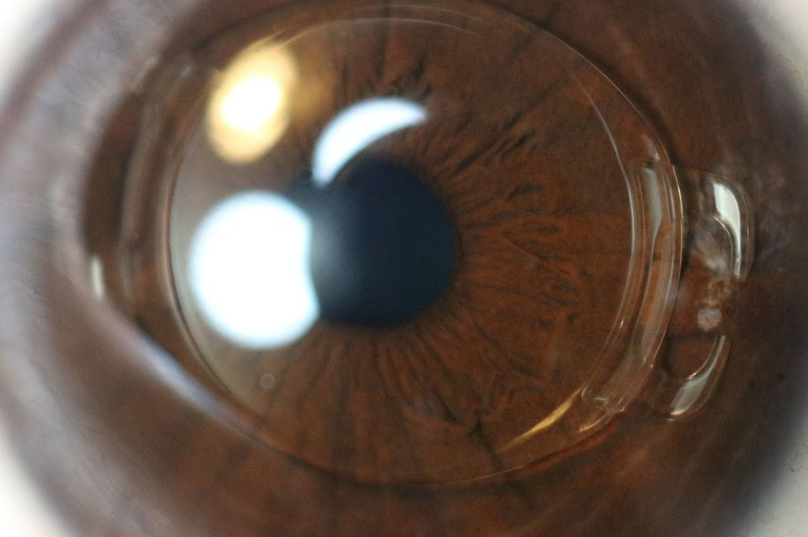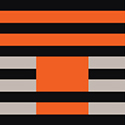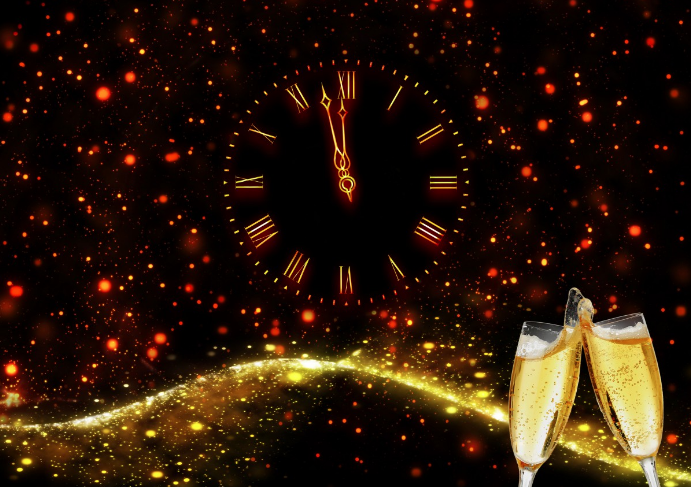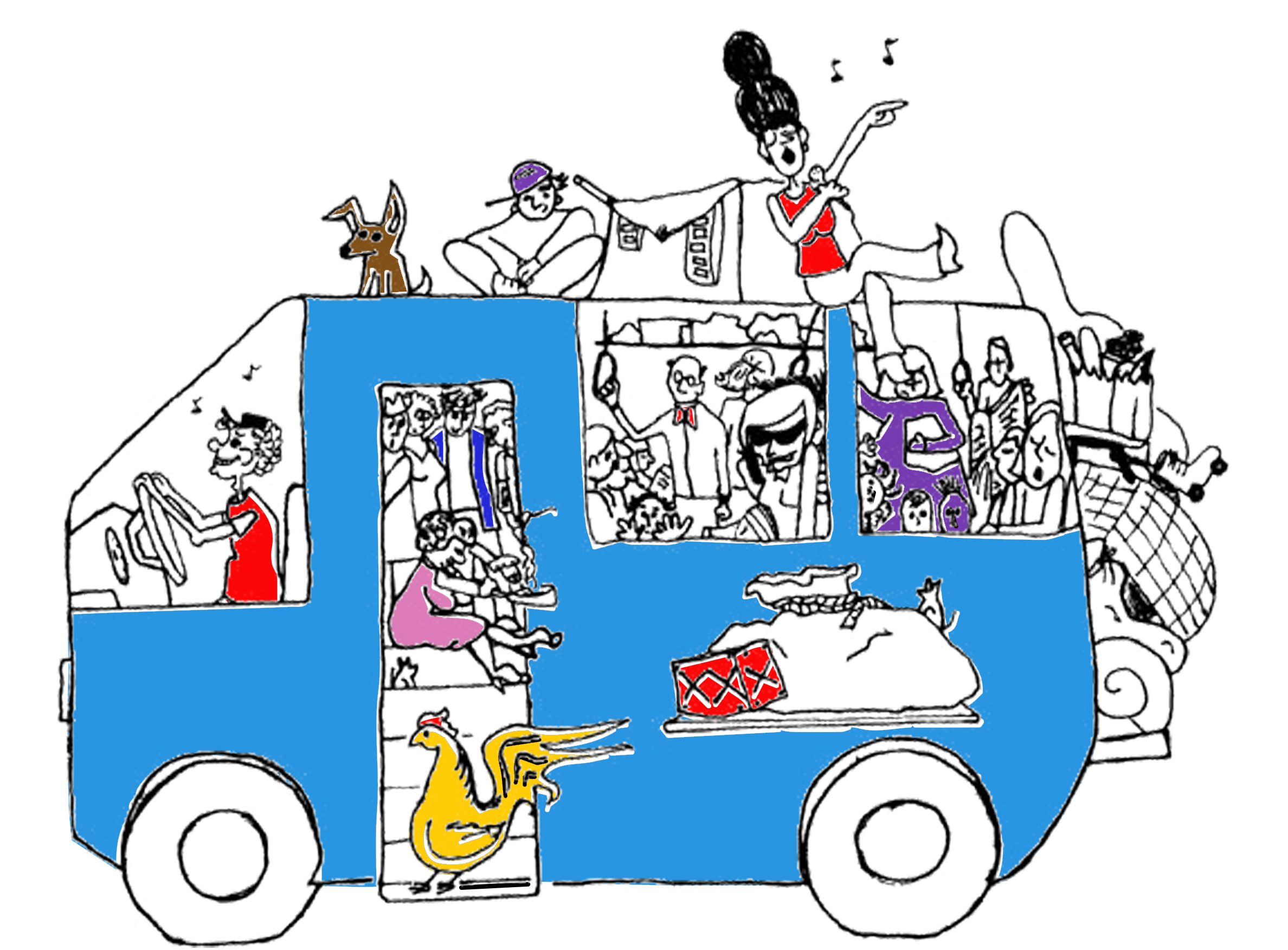by Carol S. Hyman

One of the more provocative…and okay, sometimes annoying…slogans in the Buddhist teachings says, “Be grateful to everyone.” Even if we take it as something to aspire to rather than accomplish, it still raises the question, why? Why would I want to be grateful to the person spewing hatred on social media? Or the one yelling at his kid in the grocery store today? Or the woman who invited most of my friends to a party and left me out?
Upon reflection, I came up with three reasons. But first, let’s go a little further down the rabbit hole of unlikely gratitude. What if the slogan took one step more? Be grateful for everything? That could be especially challenging since we tend to divide so much of our experience into the categories of either blessings or afflictions. And why not? It seems obvious. A financial windfall is a blessing. Illness, like the bronchitis that was my companion for several weeks recently, is an affliction to be wished, willed, or medicated away. In this case, preferably in time to avoid interfering with already scheduled cataract surgery.
Such a surgery could be considered both: a blessing offering potential benefits and an affliction requiring recuperation. Any surgery, however simple, stirs up anxiety; after all, somebody comprises the tiny percentage for whom things go wrong, and it could be you (or your loved one, as I found out not so long ago.) Still, whenever I mentioned cataract surgery, someone told me how easy it had been for them and what a miracle it was to see clearly again.
Such testimonials mitigated my anxiety. Though I decided to go for it, I wasn’t looking forward to it any more than I would a trip to the dentist. So imagine my surprise: it turned out to be entertaining! As any new parent knows, swaddling babies calms them; the operating room staff has adopted that principle. Bundled in sheets, my head cradled at a comfortable angle, the only slight irritation came from the tube in the vein on the back of my hand. Then something cool flowed there and it wasn’t irritating any more, the anesthesiologist having fulfilled his promise of something to take the edge off. Versed, I would later learn.
But back to the entertainment. First came the light show. The doctor said I would see lights, but not how compelling they would be. Bright, slightly shifty, one maintaining its round integrity while another slipped into eclipse mode and the third just hovered. Then this inner light show gained a soundtrack, rhythmic noise that gave way to tootles and moans, like woodwinds and reeds improvising instrumental scat. I asked what it was and the doctor said it was the machine that vacuums out the bits of cataract. I told her it sounded like progressive jazz. “I never heard that before,” she said. Of course, it could have been the Versed.
Relaxing more, I remembered how cataracts had crept up on me, the fuzziness and filtering largely unacknowledged until I found myself wishing for binoculars at Hamilton, unable to bring the actors’ faces into focus. Next signs on the interstate started taking longer to decipher. By the time I went for an eye exam, I wasn’t legal to drive at night in Florida. I got glasses and started learning about cataracts.
As we age, the lenses in our eyes become less flexible, less transparent, and thicker. Tissues break down and clump together, forming cataracts, cloudy filters obscuring clear vision. But thanks to the resourcefulness and skill of generations of researchers, inventors, and surgeons, these days a condition that once led to blindness can be corrected relatively easily.
What a great metaphor for the way our minds age. As we grow older, unless we know how to work with them, our minds too become less flexible. An overlay of preconceptions renders our perceptions less transparent. Our attitudes thicken. Beliefs and storylines clump together and color our experience, filtering and obscuring clarity about our world. Thankfully, this condition doesn’t require surgery. But it does take training in the operation of mindfulness.
And it is in the operation that the metaphor breaks down. Because in surgery the cataract-thickened lens is shattered into pieces and vacuumed out, after which an artificial lens is inserted to restore the eye’s normal functioning. Without that technological addition, we would be left truly blind.
But working with our minds, nothing need be gotten rid of and nothing need be added. As we learn to direct our attention to become aware of our thought process, we detect the habitual patterns indigenous to our own inner state, and our previously solid sense of who we are — replete with constant self-reference, ossified opinions, and automatic reactivity — starts coming unglued.
But the pieces — our tendencies of thought, word, and deed — don’t need to be vacuumed out; instead, awareness of them renders them transparent, thus less likely to confuse us. And no artificial lens is needed because wakeful presence, our basic nature, the lens of awareness, is always clear. Though it may be temporarily obscured by our habitual patterns, thoughts do not adhere and thus can never stain it the way cataracts do the lens in our eye. Wakeful presence will inevitably emerge, just as the clear blue sky does when clouds dissolve.
Certain habits of mind tend to dispel inner clouds and invite wakeful presence to take its natural place in our lives. Gratitude is one such tendency. If you get in the habit of it, you’ll probably come up with even more but for now, consider at least these three reasons to be grateful to everyone and for everything:
First, because you don’t know what’s coming next. I’m reminded of the Taoist story about the farmer whose neighbors, when his horse ran away, decried his bad luck. “Maybe, maybe not,” he said. The horse returned with several other wild horses, adding to his stock and prompting neighborly comments about his good luck. “Maybe, maybe not,” he said again. In trying to tame the wild horses, his son got a broken leg. Bad luck? You know what he said. Then the king’s recruiters came around to draft young men for the army but his son with the broken leg was spared. The moral being it’s hard to tell what’s good and what’s bad when you’re in the thick of it, so even if you don’t think you can be grateful, it’s at least wise to suspend judgement.
Second, because your energy affects the environment you inhabit and curiosity engenders more benefit than complaint. So even if you aren’t thankful right away, at least evince a little inquisitiveness about what lessons you might learn about yourself or the world if you were to take what’s happening as exactly what you need.
Third, because reality beats opinion every time and as long as you are alive and paying attention, you get to experience it. And that tendency we have to divide experience into blessings and afflictions is, in itself, a tenacious and pernicious affliction. Everything in life is worthy of being your path, if you change your attitude and relax as it is.
Oh yes. That last is another one of those annoying Buddhist slogans!





2 thoughts on “Giving Thanks, Even for the Unlikely”
Carol – wonderful essay. Thank you. I am grateful for all you do and are doing. Wishing you well, Martha
I have opened the same slogan the other day! Your contemplation is so convincing, clear and practical. Plus I worry about my own cataract surgery much less now…